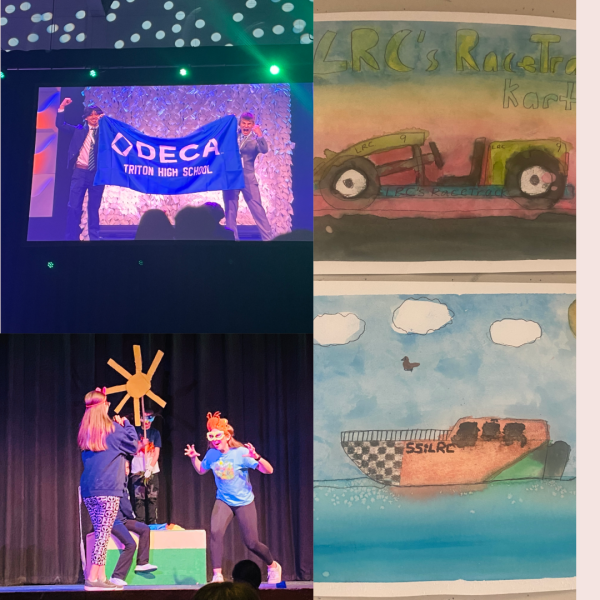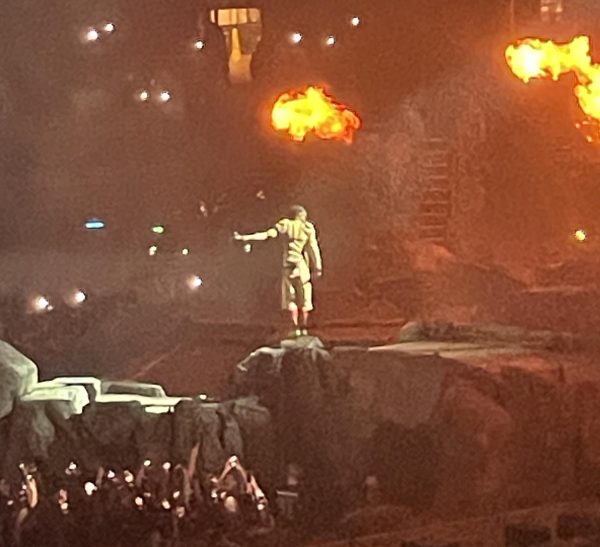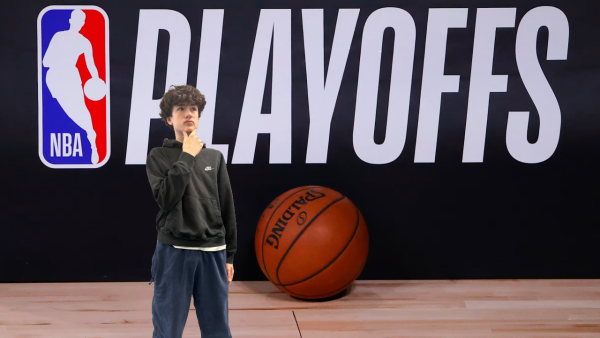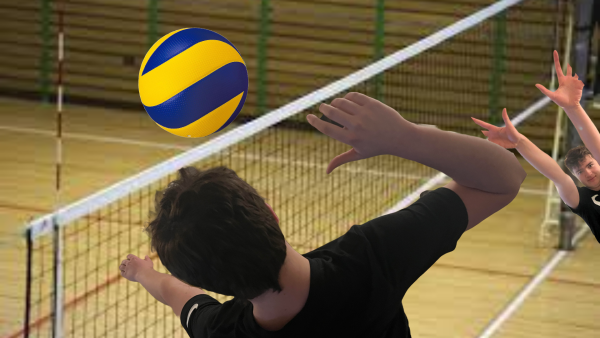Why Do You Like Wrestling?
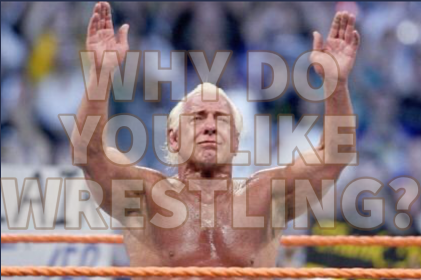
Pro Wrestling, the “sport” of wearing flamboyant spandex and pretending to fight other men is a predominantly American phenomenon often viewed by 10 year old boys or old sweaty men. I happen to not fall into either of those categories, yet I would consider myself an avid pro wrestling fan. I have been a fan as long as I can remember, being introduced to it by my dad who showed me what he watched when he was young. If I don’t fall into the products main demographics, and I know (as I have been told by my parents) that the fighting is fake, why am I still a fan?
I have really asked this question my whole life and recently I’ve come to a few conclusions. Pro wrestling is a spectacle unlike any other, I love creativity and storytelling, and the programming has simply become part of who I am today.
Where else can you see a 5’6 masked luchador fight his best friend for the custody of his only son in a ladder match at something called Summerslam? You’d be hard pressed to find a grown man with his kids in the audience jump off a 20ft structure in hopes of landing on ANOTHER grown man who wears a cloak and calls himself “The Undertaker” anywhere else. Every week, the WWE (World Wrestling Entertainment) puts, at minimum, 8 hours of this insanity on their television shows Raw, Smackdown, and NXT. These shows consistently garner viewers in the millions with each show averaging 1.5 Million, If you were to tune in this Friday night to Smackdown you would see superstars approaching the ring playing the trombone, in makeshift tanks, or even in full sword and shield viking regalia. This absurdity is the appeal. If you can take yourself out of what is believed to be normal and just accept that in this world anything is possible, that’s where the true entertainment lies.
Wrestling is unique in the fact that it very well may be the longest active storytelling piece of media in recent history. In the 50’s, wrestling became a mainstream subject and began to get airtime on television and performing in arenas instead of some guys backyard. In the 80’s, the product became geared toward children with larger than life heroes that not only saved the day, but reminded children to say their prayers and eat their vitamins. The product followed this age group and became a raunchier, attitude filled product for teens and young adults in the 90’s/2000’s. From this age we get characters that made millions of viewers tune in every week. In one case, the WWE Champion turns out to be the worlds most famous person, Dwayne “The Rock” Johnson. In the past 20 years, the WWE has been geared back towards a more child based audience with heroes such as John Cena being mainstream stars. Heroes of today are typical good guys on and off the camera, performing Make-A-Wish visits and always being attached to charity. On the other hand, there has been a resurgence in competition in the wrestling world, as other promotions and companies such as AEW have their own cast of heroes and villains, giving a show for a more mature person. This opens up a space for competition between promotions and a vastly growing market for the sport.
Obviously the fighting is staged. In most cases these men and women walk away with minimal injuries every night. I see this as an absolute advantage. Unlike other combat sports such as the UFC or boxing, these fighters can go out there 5 nights a week and put on a show at the professional level. Once again, you must suspend your disbelief as even though most shots do not connect there is a serious physical and mental risk that comes with being a professional wrestler. Most veterans suffer the same poor conditions today that are commonly seen by football players of the same era. Up until the discovery of issues such as CTE, unprotected shots to the head were incredibly commonplace in professional wrestling. The idea was that the head-shot always took place right in front of the camera, so you better step up and make it a good one for the audience. In more extreme cases, these brain injuries have left wrestlers in compromised states, leading to paralyzation and violence. Lack of attention to detail with safety, and often a blatant disregard of others well-being was commonplace to uphold the charade that is professional wrestling.
So why do I like pro wrestling? When I go to college and enter the workforce, I want to use my creativity in a way that would tell stories of some kind. Though I haven’t exactly discovered what path that will be, pro wrestling has absolutely played a part in finding that path. The history of pro wrestling is one massive story, starting in the mainstream in roughly the 50s and creating a woven tale of heroes and villains up until this very day. Every wrestler ever is part of the same epic poem that has spanned generations, from Ric Flair to Hulk Hogan to The Rock to John Cena. Bad guys lose, good guys win, over and over and over again. What is there not to love?
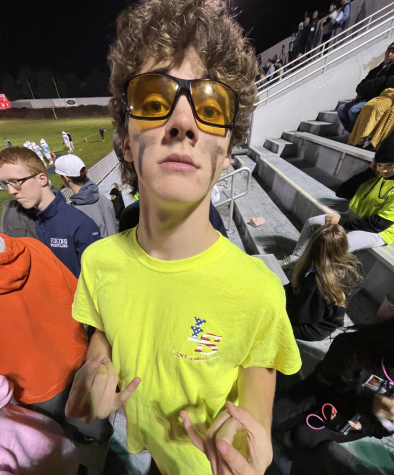
Hey Tritonians my name is Cam Neary and I’m a junior staff writer here at Triton High School. When I am in school I like to participate in drama and...


